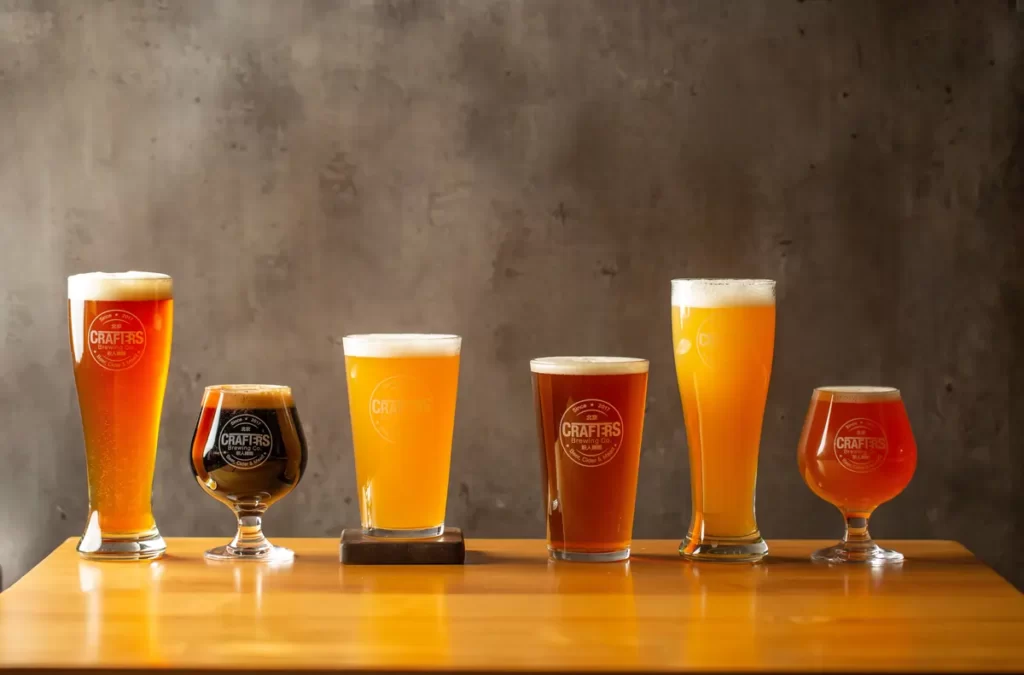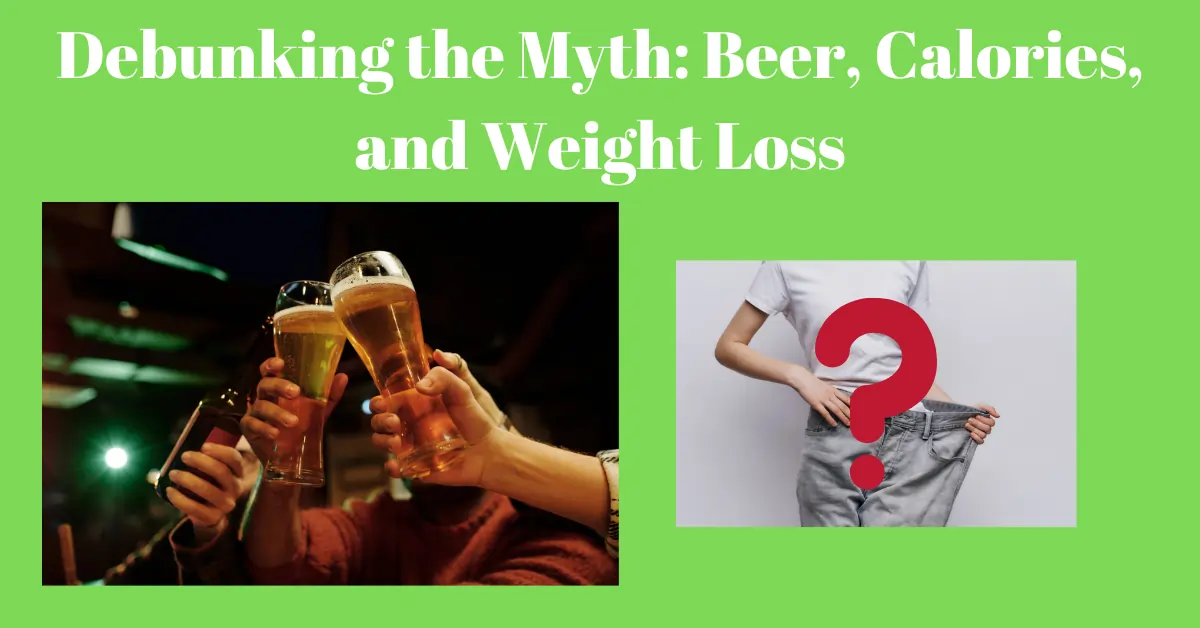When it comes to weight loss, the role of beer can be quite confusing. Some believe that opting for alcohol-free beer is the solution, assuming it to be a healthier choice. However, the relationship between beer, calories, and weight loss is not as straightforward as it may seem. In this article, we will explore the factors that make alcoholic beer a potential obstacle to weight loss and shed light on the hidden calorie content of alcohol-free alternatives.

Understanding the Calorie Content:
To comprehend the impact of beer on weight loss, it’s essential to understand the calorie content of different macronutrients. While fat contains 9 calories per gram and carbohydrates and protein provide 4 calories per gram each, alcohol packs 7 calories per gram. This makes alcohol nearly as calorie-dense as fat. A single beer can, therefore, be comparable to an entire meal in terms of calorie content.
The Challenges of Alcoholic Beer:
Alcoholic beer poses several challenges to weight loss efforts. Firstly, when alcohol is consumed, the body prioritizes burning it as a fuel source, slowing down the burning of other consumed food. Secondly, alcohol’s calorie density means that even a moderate intake can contribute significantly to one’s daily calorie intake. Additionally, alcohol tends to impair judgment, making it easier to give in to unhealthy snack choices while under its influence. The morning after, the infamous hangover hunger can further sabotage one’s weight loss goals.
The Dilemma of Alcohol-Free Beer:
Switching to alcohol-free beer may appear as a viable solution to these challenges. However, it is not as simple as it seems. While alcohol is removed from alcohol-free beer, it is often compensated for by adding sugar. Alcohol acts as a flavor carrier, enhancing aroma and balancing bitterness. In its absence, sugar or other sweeteners are used to mimic these properties, resulting in a higher sugar content. Consequently, alcohol-free beer still contains calories, albeit in reduced quantities.
Finding Balance and Making Informed Choices:
The good news is that you don’t have to completely eliminate beer from your life if you enjoy it. The key lies in mindful consumption and being aware of your overall daily energy intake. Viewing calories as a limited resource, much like money, helps put things into perspective. Prioritization and informed decision-making become crucial. Acquiring knowledge about the calorie content of different beers allows you to make more conscious choices aligned with your weight loss goals.
Calories in Different Types of Beer:
Let’s take a look at the approximate calorie content of various beers per 100 ml:
- Strong beer (Falcon, 5.2% alcohol):
- Calories: 45
- Fat: 0g
- Carbohydrates: 3g (28% of energy)
- Protein: 1g (9% of energy)
- Alcohol: 4g (63% of energy)
- Medium alcohol beer (3.5% alcohol):
- Calories: 40
- Fat: 0g
- Carbohydrates: 5g (49% of energy)
- Protein: 0g
- Alcohol: 3g (51% of energy)
- Light beer (2.2% alcohol):
- Calories: 25
- Fat: 0g
- Carbohydrates: 3g (46% of energy)
- Protein: 0g
- Alcohol: 2g (54% of energy)
- Alcohol-free beer (, 0% alcohol):
- Calories: 20
- Fat: 1g (25% of energy)
- Carbohydrates: 4g (65% of energy)
- Protein: 1g (10% of energy)
- Alcohol: 0g
Understanding the Impact of Alcohol:
Apart from its calorie content, alcohol can affect weight loss in other ways. Alcohol consumption makes it harder for the body to burn fat, even if you exercise regularly. When alcohol is present in your system, your body prioritizes metabolizing it before other fuel sources. As a result, the process of burning stored fat slows down.
Additionally, alcohol can hinder post-workout recovery and increase the risk of injury. If you engage in late-night training sessions or exercise shortly after consuming alcohol, your body may struggle to assimilate the workout effectively. Therefore, if you have ambitious fitness goals, abstaining from alcohol becomes more crucial.
Striking a Balance:
Ultimately, it’s not necessary to completely eliminate beer from your lifestyle to achieve weight loss. It’s about finding a balance that aligns with your goals and personal preferences. By being mindful of your overall calorie intake, making informed choices, and moderating your alcohol consumption, you can still enjoy a beer without derailing your weight loss efforts.
Beer’s impact on weight loss is a complex matter that requires careful consideration. While alcoholic beer can hinder weight loss due to its calorie content and potential for poor judgment, switching to alcohol-free beer is not a foolproof solution. Alcohol-free alternatives often contain added sugars to compensate for the absence of alcohol, making them higher in calories. The key to achieving weight loss while enjoying beer lies in moderation, informed decision-making, and balancing your overall calorie intake. By understanding the calorie content of different beers and being mindful of your choices, you can still savor a refreshing brew while making progress towards your weight loss goals. Remember, knowledge, awareness, and moderation are the keys to finding a healthy balance.

